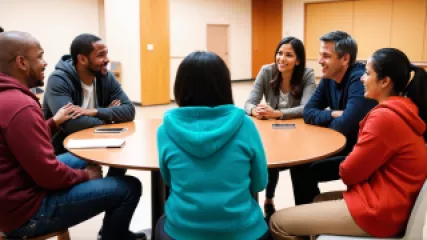There's something genuinely remarkable about the resilience of the human spirit, the way it can be nurtured and strengthened even in the face of adversity. This belief in the transformative power of resilience fuels my approach to therapy, where I specialize in community support. My name is Stan Lane, and over the past three years, I have dedicated myself to assisting individuals in harnessing their inherent strength to overcome challenges and foster a sense of belonging and connection within their communities.
In our sessions, you'll find that I value structure and discipline highly. This isn't because I want to impose rigidity but because I believe in the clarity and direction that a well-structured approach provides. We'll begin by laying down a clear map of your goals, understanding the obstacles that stand in your way, and then methodically working through them. This process is not about quick fixes but about building lasting strategies and coping mechanisms that empower you not just for today but for a lifetime.
My methodology revolves around creating a safe, non-judgmental space where we can explore your experiences and feelings openly. From there, we employ evidence-based practices tailored specifically to your needs and situation. Together, we will engage in exercises designed to enhance your understanding of yourself and your interactions with the community around you. These exercises are not arbitrary but chosen with the utmost care to ensure they resonate with your personal journey.
One aspect that sets my practice apart is my emphasis on measurable progress. It's essential for you to see how far you've come, not just feel it. To this end, we periodically review our path, celebrating victories, no matter how small, and recalibrating our approach whenever necessary. This structured reflection helps in grounding the therapeutic process in reality and ensures that we are always moving forward.
I am particularly drawn to working with individuals who feel disconnected or marginalized within their communities. If you're struggling to find your place, to feel heard, or to contribute in ways that are meaningful to you, I believe I can help. Through a combination of cognitive-behavioral techniques and community-based interventions, we'll work towards not just improving your mental health but enriching your social connections and engagement as well.
In closing, I understand that reaching out for help can be daunting, and taking that first step requires courage. But know that in doing so, you're not showing weakness but strength. And it's this strength that we'll build upon, together, to navigate the complexities of life and community. I look forward to embarking on this journey with you, guiding you towards a fuller, more connected existence.















